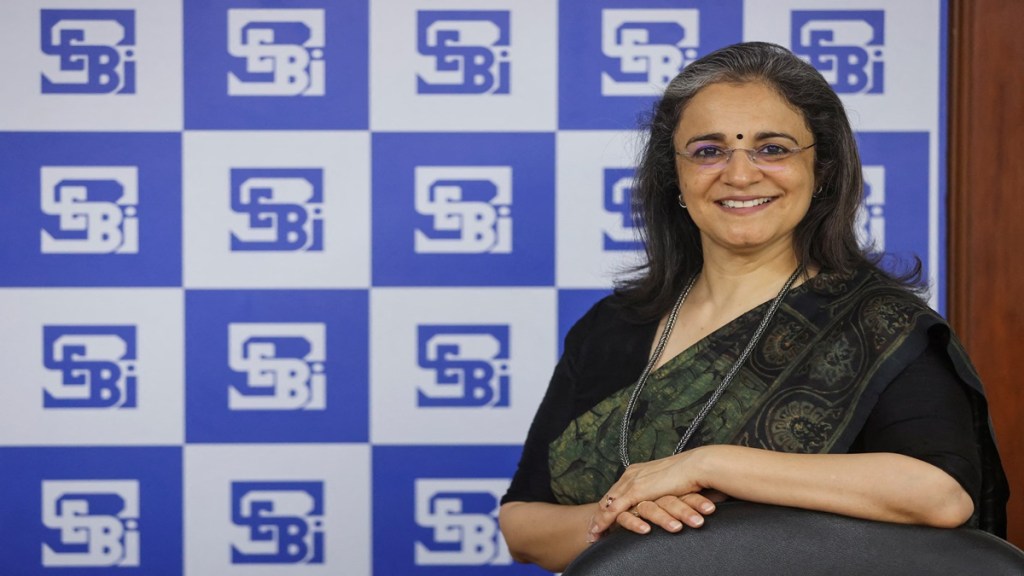At a time when foreign investors are continuously taking money out of the Indian market, Securities and Exchange Board of India Chairperson Madhabi Puri Buch citing data said that domestic institutions and retail investors come in to fill the gap when foreign flows go out due to global reasons.
Therefore, she said there’s no time like present to invest in SIPs (Systematic Investment Plans). Buch was answering a question at the launch of SBI Mutual Funds’ 250-rupee JanNivesh SIP launch. “The best return on any market-linked instrument comes actually when you do not try and time the market,” she further said adding that an SIP is the perfect product as it averages out the cost of acquisition and that is the right strategy.
From September 2024, foreign portfolio investors (FPIs) have net sold equities worth $17.5 billion or Rs 1.52 lakh crore and domestic institutional investors (DIIs) have net bought Rs 3.35 lakh crore. From February till now, FPIs have net sold equities worth Rs 30,232 crore and DIIs are net buyers of Rs 30,779 crore.
SBI Mutual Fund on Monday launched a Rs 250-micro investment SIP scheme JanNivesh aimed at financial inclusivity and Buch called her one of her “fondest scheme”. This scheme will be offered under a balanced-advantage fund.
DP Singh, deputy managing director and joint CEO of SBI Mutual fund, who was also present at the event, explained that in a balanced advantage fund, the fund manager takes the call of equity allocation, which can move from 0% to 100%. “At present, the equity allocation is 30-32% and as the market corrects, we might move to 40-45%,” he said adding “We don’t want to burn the finger” of a new investor.
Buch noted that at present while some asset management companies (AMCs) do offer small-ticket SIPs, they are not viable due to higher costs due to which asset management companies take at least 7-8 years to break-even, she said. “It is wonderful to see that the entire ecosystem has come together to break even between 2-3 years.”
In January, the regulator had come up with a consultation paper on financial inclusion through sachetisation of investment in mutual fund schemes. It had noted that mutual fund industry participants have agreed to offer discounted rates for faster break-even for AMCs. It had also proposed the reimbursement of certain costs from the Investor Education & Awareness Fund.
It stated that an investment in this small-ticket SIP of Rs 250 may be restricted to three SIPs of different AMCs. Further, while AMCs can continue to offer more than three such schemes, the discounted rates offered by intermediaries are restricted to only the first three schemes. Buch explained that this has been done to not jeopardise the overall initiatives of the fund.

